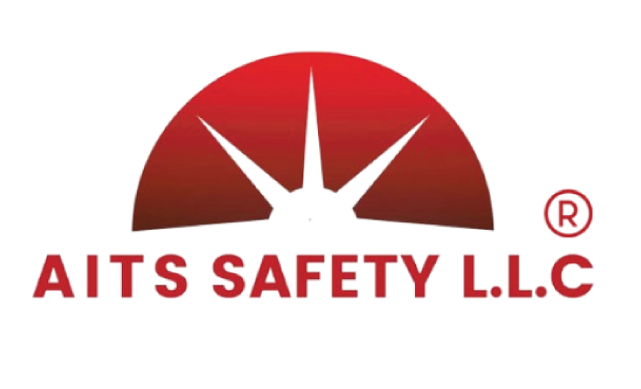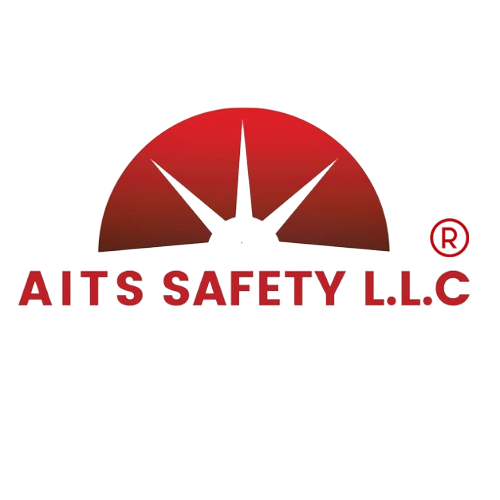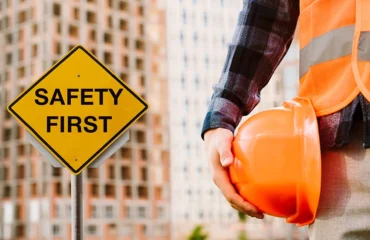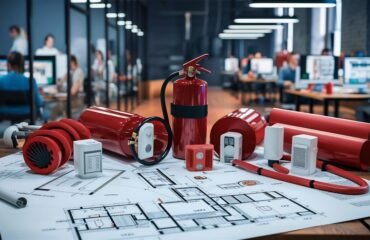As the summer heat increases in the UAE, commercial buildings are facing the risk of catching fire. While a majority of people are focused on keeping cool and comfortable by using cooling systems, hot temperatures could also create fire hazards. The high temperatures can cause strain on electrical systems, equipment, and fire protection devices, and that’s the reason it’s so important for property managers and owners to take an active approach to ensuring fire security. In this article, we’ll talk about how extreme summer temperatures increase the chance of fires in commercial buildings and offer practical tips to minimize the danger
How Summer Heat Contributes to Fire Hazards
Overloaded Electrical Systems
In the summer, commercial electrical systems are usually in higher demand. Air conditioning units, fans, as well as different cooling systems are always working to keep the temperature of a pleasant indoor environment. The constant demand for power can lead electric systems to become overheated. Heating up wiring and equipment can cause short circuits that could cause fires. It is essential to ensure that your home’s electrical system is well-maintained and regularly checked to avoid these incidents.
Flammable Materials Becoming More Dangerous
The heat of summer could make certain materials in commercial structures more susceptible to fire. Things like paper, textiles and wooden furniture may dry out and turn into highly fireproof when exposed to high temperatures. In warehouses, offices, or storage spaces, temperatures can transform normal items into dangerous dangers for fire. It is crucial to keep flammable objects in a safe place and to ensure adequate ventilation to limit the danger.
Air Conditioning and Ventilation Systems Overheating
HVAC and ventilation systems are at their peak during summer and put extra stress the electrical parts of their systems. If they’re not well maintained, the chance of fires and overheating increases. Incorrectly maintained or used AC units can cause fires, especially if there is electrical problems or the absence of regular cleaning. Regular AC maintenance and servicing could assist in avoiding dangerous situations.
Humidity and Fire Safety System Malfunctions
A common problem during summer in the UAE is also a problem for the fire prevention systems. The humidity can cause false alarms for smoke detectors, or make fire detections not detected. Furthermore, fire extinguishers and sprinkler systems could not operate effectively if they’re not regularly maintained and checked. In the event of humidity, it can lead to the formation of moisture within these systems, which can reduce their effectiveness at times when they’re most needed.
Common Fire Hazards in Commercial Buildings During Summer
Outdated Wiring and Overloaded Circuits
The electrical systems might not be constructed to cope with the large demand that occurs during the summer months.
Electrical circuits and wiring that are older tend to overheat or be damaged.
Older systems have a greater danger of sparking electrical fires.
Flammable Materials in High-Risk Areas
Commercial buildings are often used to store things like cardboard, paper, and even chemicals that are able to catch fire.
In summer, these substances are more prone to fire, particularly when they are stored near electric equipment or sources of heat.
A safe storage space and fire-resistant materials can lower the danger
Neglected Fire Safety Equipment
In the summer heat, it is common for fire safety equipment to be frequently overlooked.
Alarms, fire extinguishers, and sprinklers could not work effectively if they are not maintained regularly.
Regular testing and maintenance are essential to ensure that the fire safety equipment is prepared for use
How to Reduce Fire Risks During the Summer Heat
Regular Inspections and Maintenance
Plan a pre-summer fire safety audit to assess the electrical system’s condition, including fire alarms, fire extinguishers, and sprinklers.
Make sure the AC devices and systems for ventilation are maintained and maintained.
Repair any faulty or old apparatus before the heat of summer arrives
Proper AC Maintenance
AC systems are under more strain in the summer months, which is why regular maintenance is essential.
Clean your filters, examine the wiring, and make sure that the flow of air is not blocked to prevent overheating.
A maintained AC appliance is much less prone to trigger fires from electrical sources.
Store Flammable Materials Safely
Place flammable substances in a cool and well-ventilated location far from sources of heat or electrical appliances.
Use fire-resistant containers and cabinets to store items that are at risk.
Proper storage is among the best ways to stop fires in commercial buildings.
Upgrade Electrical Systems
The older electrical systems may not be able to handle the increased demand during summer.
A new electrical system can aid in preventing overheating and reducing the chance of electrical fires.
Get a licensed electrician to examine and update your electrical system if it is required.
Conduct Fire Safety Training
Make sure your employees are aware of fire safety protocols, particularly before the summer months.
Regularly conduct fire drills to make sure employees are aware of how to respond in the event of an emergency.
Inform staff about the use of fire extinguishers safely and escape safely in the event of an incident.
Conclusion
The summer heat presents special fire hazards for commercial structures. The overworked electrical systems, the flammable material, and a lack of fire safety equipment contribute to the higher risk of fires in the summer months. However, through regular inspections, correct maintenance, and proactive safety measures, property managers and property owners can greatly reduce the risk of fires. If you’re trying to make sure that your commercial space is protected this summer, you should consider hiring a firefighting company in Dubai, such as AITS Safety. Our team of experts can provide fire safety inspections as well as system upgrades and regular maintenance to ensure your building is protected all year long.





